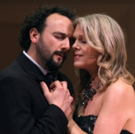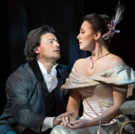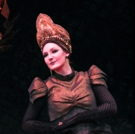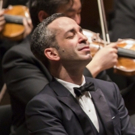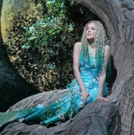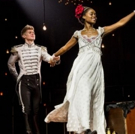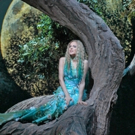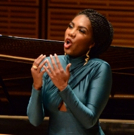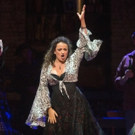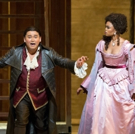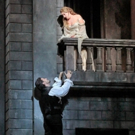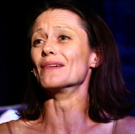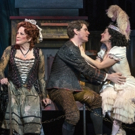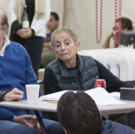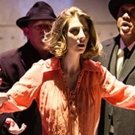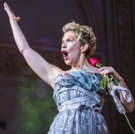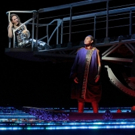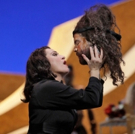Richard Sasanow has been BroadwayWorld.com's Opera Editor for many years, with interests covering contemporary works, standard repertoire and true rarities from every era. He is an interviewer of important musical figures on the current scene--from singers Diana Damrau, Peter Mattei, Stephanie Blythe, Davone Tines, Nadine Sierra, Angela Meade, Isabel Leonard, Lawrence Brownlee, Etienne Dupuis, Javier Camarena and Christian Van Horn to Pulitzer Prize-winning composers Kevin Puts and Paul Moravec, and icon Thea Musgrave, composers David T. Little, Julian Grant, Ricky Ian Gordon, Laura Kaminsky and Iain Bell, librettists Mark Campbell, Kim Reed, Royce Vavrek and Nicholas Wright, to conductor Manfred Honeck, director Kevin Newbury and Tony-winning designer Christine Jones. Earlier in his career, he interviewed such great singers as Birgit Nilsson, and Martina Arroyo and worked on the first US visit of the Vienna State Opera, with Karl Bohm, Zubin Mehta and Leonard Bernstein, and the inaugural US tour of the Orchestre National de France, with Bernstein and Lorin Maazel. Sasanow is also a long-time writer on art, music, food, travel and international business for publications including The New York Times, The Guardian, Town & Country and Travel & Leisure, among many others.
February 10, 2017
Anyone arriving at a performance of the Met's new RUSALKA, in Mary Zimmerman's production, thinking that there's going to be an evening of Disney-type fun from this distant cousin of THE LITTLE MERMAID, will be in for a big disappointment. But for those seeking beautiful music (including one of opera's great arias), a game cast and good singing, RUSALKA, with soprano Kristine Opolais in the title role, offers a musically satisfying evening.
February 7, 2017
During the opening sequence of NATASHA, PIERRE AND THE GREAT COMET OF 1812--the extravagant, whirlwind of a show now playing at Broadway's Imperial (how fitting) Theatre--I couldn't help thinking how the Met could learn a thing or two from a show like this. No, I don't mean encouraging the audience to have a glass or two of vodka too many to drink. Rather, it's how it uses an immersive setting, dazzlingly created by scenic designer Mimi Lien, to draw the audience in closer.
February 2, 2017
“RUSALKA is an operatic fairytale with a strong message about the consequences of over-reaching--an appropriate, cautionary tale for our times,” said Peter Gelb, the Metropolitan Opera's General Manager, introducing a panel at the Guggenheim Museum's Works & Process series that included director Mary Zimmerman and conductor Mark Elder. The new production opens at the Met on February 2--“and that's not an 'alternative fact,'” said Gelb--starring soprano Kristine Opolais as Rusalka, tenor Brandon Jovanovich as the Prince, mezzo Jamie Barton as Jezibaba (the witch), and bass-baritone Eric Owens as the Water Gnome (Rusalka's father).
January 30, 2017
At last month's concert in Carnegie Hall, Joyce DiDonato was glorious musically but less-than-cheery philosophically--and that was before the guy in the White House started taking aim at arts and education funding. Taking the stage at Carnegie's Zankel Hall on Saturday, at THE MARILYN HORNE SONG CELEBRATION, Marilyn Horne was in a feistier frame of mind about the fight for our hearts, minds and souls--though she admittedly hadn't figured out a way for her personally to take on the battle . It seemed to me that the evening, with emerging singers and the great guest, was a pretty good way to get the ball rolling.
January 24, 2017
It's that time of the year again, when the flu season gives artistic administrators big headaches, trying to fill in the blanks when a headliner calls in sick. CARMEN's been a particular headache, with mezzo Sophie Koch out of action in the title role after rehearsals had started. Luckily, Clementine Margaine--scheduled for the second cast--was able to step into her flamenco shoes for the first night--and all to follow--doing a bang-up job.
January 23, 2017
It didn't strike me until the lights were going down for the start of CARMEN last Thursday that this was the second night in a row that Met audiences were being transported to the same town in sunny Spain. Truth be told, “sunny” is hardly an adjective I'd hardly use to describe Bizet's tragedy in the shadow of the bullring, while it's just about right for dizzy events of Rossini's charmer, IL BARBIERE DI SIVIGLIA, which I'd heard the night before.
January 19, 2017
What's new in opera? Everything you can imagine--and much that you couldn't conceive of--all in the space of a few days in New York.
January 15, 2017
There's some famous and gorgeous music in Gounod's ROMEO ET JULIETTE—Juliet's waltz, Romeo's “Ah, leve-toi, soleil” and a number of duets —but this is definitely not one of those operas where the title characters can take turns with the showpieces but never look each other in the eye. Luckily, that wasn't the case with Diana Damrau and Vittorio Grigolo in the Met's new Bartlett Sher production, where they lit some fires at Tuesday's performance.
January 16, 2017
The life and times of the spy-as-femme-fatale, Mata Hari, has always attracted the interest of film and stage artists. Now we have the Matt Marks-Paul Peers opera MATA HARI—which opened New York's fifth Prototype Festival last week and continues through Saturday the 14th—though I think of it as more of a dance than an opera. Not literally, of course, but dramatically, as a dance of death for the title character and the men (and one woman) who surround her in this compelling, though somewhat messy, work.
January 10, 2017
When I saw that New York City Opera was doing Leonard Bernstein's CANDIDE at the same time as New York's Prototype Festival--with Missy Mazzoli's BREAKING THE WAVES opening the festival of opera-theatre and music-theatre on the same night—I thought that it was great counter-programming. After all, what could be further from Mazzoli's brilliant but grim gem than Bernstein's comic masterpiece--proving there's more than one way to skin a music theatre piece?
January 4, 2017
Leonard Bernstein's CANDIDE has had more lives than that proverbial cat--the latest being New York City Opera's new take on it, opening on January 6 for a ten-performance run at Jazz at Lincoln Center's Rose Theatre. It is, once again, helmed by director Hal Prince and choreographer Pat Birch, who were responsible--with librettist Hugh Wheeler and conductor John Mauceri--for the resuscitation and renovation of the once-considered unproducible work, more than 40 years ago.
December 27, 2016
For a new opera to have its second major showing less than four months after its premiere is unheard of—but then BREAKING THE WAVES, based on the Lars Von Trier film of the same name, isn't just any opera. This triumph by composer Missy Mazzoli, librettist Royce Vavrek, and direction by James Darrah—with a star-making turn by soprano Kiera Duffy in the central role of Bess—debuted at Opera Philadelphia last September and is having its New York premiere on January 6-9, 2017, over the first weekend of the Prototype Festival at NYU's Skirball Center.
December 21, 2016
At IN WAR & PEACE, HARMONY THROUGH MUSIC, her Carnegie Hall concert the other night with the Baroque ensemble, Il Pomo d'Oro, mezzo Joyce DiDonato was in fine voice, if not in high spirits—and who could blame her? The state of the world is about as bad as it has been for a long time, with death and taxes far from the only certainties, starting in our own backyard.
December 19, 2016
On paper, it might seem that Kaija Saariaho's L'AMOUR DE LOIN (LOVE FROM AFAR), libretto by Amin Maalouf, couldn't possibly fill a stage the size of the Met's: three characters and a chorus that bobs in and out of the action. Yet, in action, this breathtaking, shimmering piece not only seems at home--particularly in the able hands of soprano Susanna Phillips and the Met orchestra under the Finnish conductor Susanna Malkki in Robert Lepage's production--but it's hard to imagine hearing it any other way.
December 13, 2016
Despite some fine singing from soprano Patricia Racette (who also went the Full Monty in the title role), the Met's revival of Richard Strauss's SALOME was a little tame--something that it should never be.
« prev 1 … 17 18 19 20 21 22 23 … 31 next »
Videos


